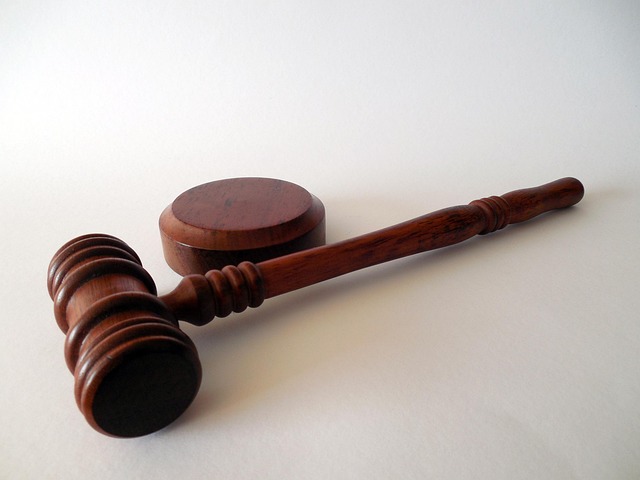Understanding legal criteria for jury selection is vital in litigation strategy, particularly in high-stakes cases like white-collar crime. Defense attorneys scrutinize prospective jurors for biases, conflicts of interest, and prior experiences that might affect judgment, aiming to shape an unbiased jury panel. This process, known as voir dire, is crucial in healthcare law, where complex issues and patient rights must be protected. Skilled attorneys use legal grounds for objections to ensure fair trials, maintaining public trust in institutions and the rule of law.
In the intricate landscape of healthcare, legal issues often arise during critical processes such as jury selection. This article delves into essential aspects of understanding legal criteria for jury selection, exploring grounds for objections in the courtroom, and navigating challenges during the delicate jury picking process. By examining common legal issues and rights protections, professionals can ensure fair trials and mitigate potential risks, upholding justice within healthcare litigation. Key focus areas include leveraging legal grounds for jury selection objections to safeguard patient privacy and advocate for ethical practices.
- Understanding Legal Criteria for Jury Selection
- Exploring Grounds for Objections in Courtroom
- Navigating Challenges During Jury Picking Process
- Common Legal Issues: Rights and Protections
Understanding Legal Criteria for Jury Selection

Understanding the legal criteria for jury selection is a pivotal aspect of any litigation strategy. The process involves meticulously scrutinizing potential jurors to ensure impartiality, relevance, and an understanding of the case’s complexities. Legal grounds for objections during this phase are multifaceted, ranging from personal biases to conflicts of interest. Attorneys must be adept at navigating these challenges, as successful objections can significantly influence the composition of the jury and, consequently, the outcome of a trial, especially in high-stakes cases like white-collar and economic crimes where winning challenging defense verdicts is paramount.
Jury selection criteria extend beyond mere competency to assess a juror’s ability to render an unbiased verdict. This includes evaluating their exposure to pretrial publicity, understanding of complex legal concepts, and any prior experiences that might taint their judgment. In cases involving sensitive subjects or high-profile individuals, careful consideration is required to avoid indictment due to bias or preconceived notions. The goal is to foster a trial environment where the jury can objectively weigh evidence, free from influences that could skew their decision-making process.
Exploring Grounds for Objections in Courtroom

In the realm of healthcare law, navigating the courtroom involves a intricate dance where legal strategy plays a pivotal role. When it comes to jury selection, attorneys have specific legal grounds for objections to ensure a fair trial. These objections go beyond superficial reasons and delve into the heart of potential biases or conflicts that might influence the jury’s decision. By challenging prospective jurors through well-founded objections, defense teams can shape an unbiased panel, which is crucial in cases involving complex healthcare issues.
Understanding white collar and economic crimes is often a game-changer in these proceedings. A defendant’s past, including any unprecedented track record of similar offenses, becomes a focal point during jury selection. Skilled white-collar defense attorneys employ their expertise to uncover nuances that might exonerate or mitigate the client’s involvement, thereby shaping the narrative presented to the selected jurors. This strategic approach ensures a more just outcome in what can be emotionally charged and highly scrutinized healthcare legal cases.
Navigating Challenges During Jury Picking Process

The jury picking process is a critical phase in any legal case, but it can present unique challenges for healthcare-related litigation. This stage, also known as voir dire, involves meticulously screening potential jurors to ensure impartiality and competency. Defense attorneys, especially those specializing in white collar defense and representing corporate and individual clients accused of white collar and economic crimes, play a pivotal role during this phase. They scrutinize each prospective juror on legal grounds for selection objections, aiming to exclude those with biases or prejudices that could skew the trial’s outcome.
Strategic objection tactics are crucial here. Attorneys must navigate the delicate balance between securing a fair and unbiased jury while adhering to applicable laws and regulations. By raising objections based on specific legal grounds, such as bias, familiarity with the case, or inability to follow legal instructions, defense teams can shape the jury pool. This meticulous navigation ensures that corporate and individual clients receive a trial by an impartial jury, a fundamental cornerstone of our judicial system.
Common Legal Issues: Rights and Protections

In healthcare, a multitude of legal issues arise, often complex and multifaceted. One significant aspect is understanding and protecting patient rights, which are enshrined in various laws and regulations. Patients have the right to informed consent, meaning they should be fully apprised of their medical condition and treatment options before giving permission for procedures. This process ensures patients make autonomous decisions about their healthcare. Furthermore, privacy and confidentiality are paramount; healthcare providers must safeguard sensitive patient information, adhering to strict data protection protocols.
Legal grounds for jury selection objections play a crucial role in ensuring fairness during trials involving healthcare disputes. Both corporate and individual clients have the right to a fair trial, free from biased selections. The philanthropic and political communities also have a stake in these issues, as they impact public trust in healthcare institutions. Throughout all stages of the investigative and enforcement process, maintaining transparency and adherence to legal protections are essential to foster a robust healthcare system that respects both patient rights and the rule of law.
In navigating healthcare legal issues, understanding the intricate details of jury selection is paramount. From recognizing the criteria for qualified jurors to effectively managing objections during the courtroom process, each step demands meticulous attention. By exploring common legal grounds for both jury selection and objections, professionals can ensure a fair and just outcome. Armed with this knowledge, they are better equipped to navigate the complexities, ultimately fostering a more robust and transparent healthcare legal framework.






